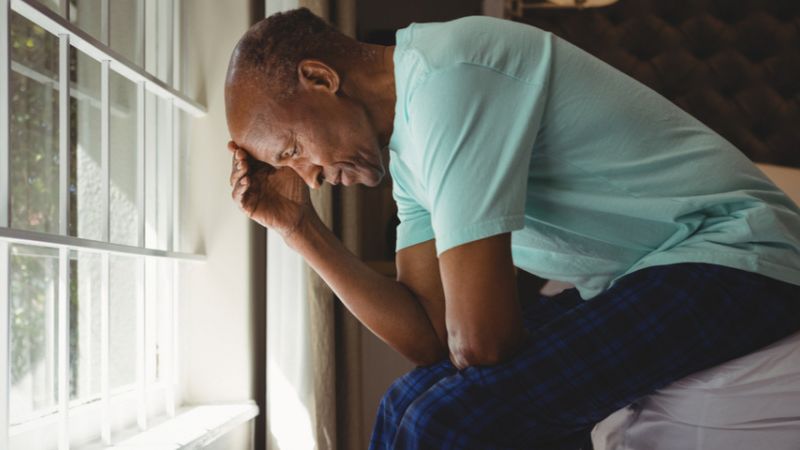September is Fall Prevention Awareness Month, which not only brings more attention to the dangers of senior falls, but also helps educate people on fall prevention for seniors. Falls in the elderly can have serious long-term health ramifications. In the U.S., an older adult falls every second, which makes falls the most common cause of injuries and deaths among that age group, according to the Centers for Disease Control.
While falls can happen anywhere, the majority of them--55 percent--happen at home. Of those falls that occur at home, research has also shown that 30 percent take place in the bedroom. There are plenty of ways, however, to implement fall prevention for seniors in the bedroom.
Fall Prevention For Seniors: Risks In The Bedroom
The following list of elderly fall prevention measures you can take in the bedroom will help ensure you and your loved ones stay as safe as possible:
-
Get a Bedside Lamp. Position a lamp within reach at either side of the bed. This will allow you to easily turn the light on if you need to get up in the middle of the night. It will also help you walk safely with a clear pathway from Point A to Point B during nighttime hours.
-
Avoid Throw Rugs. Although rugs are lovely decorative pieces, they can become tripping hazards over time, contributing to falls. Refrain from putting rugs in your bedroom, especially around your main walkways. If you still desire rugs in the bedroom, choose a non-slip one that is safely secured to the ground, or consider wall-to-wall carpeting instead.
-
Accurate Bed Height. When you are sitting at the edge of your bed, your knees should be at a 90-degree angle with both your feet lying flat on the floor, according to Right at Home. Ask someone to help you measure your bed. If it is too tall or too short, adjust the height to better fit your body and needs.
-
Install Bed Rails. Getting out of bed can be extremely difficult for older adults. Having bed rails on either side can provide something to hold onto when sitting up, acting as a restraint to help prevent you from falling out of bed.
-
Rise Slowly. It is not uncommon for older adults to feel light-headed or dizzy when standing up, which can lead to falls in the elderly. The best way to combat this? Go slowly. Sit up before standing, especially if you are getting up from lying down, and stay in a seated position for 30 seconds to one minute, depending on how you feel. If you don’t feel any signs of lightheadedness or dizziness, stand up slowly, using something to lean on as you get up. If you continue to feel lightheaded, call for emergency assistance.
-
Use a Reaching Tool. A reaching assist tool, shaped like a long stick with a grabbing tool at the end, is both affordable and practical. Helping you to extend your reach while preventing the loss of balance, a reaching tool is an easy way to practice fall prevention for seniors at home.
-
Open Bedroom Space. Having too many items in the bedroom (whether that be furniture, decor, or other miscellaneous items), can make for a cluttered area that becomes hard to navigate. Organize your bedroom to create more open space, allowing you to move freely and safely.
-
Motion Sensor Lights. It can often be difficult to turn on every light as you make your way through the house, especially at night. Plug in motion sensor lights that activate at night in every hallway. This way you can go from room to room without having to strain your eyes and feeling for the light switch — distracting you from where you’re trying to go.
Elderly Fall Prevention and Independence
Preventing falls in the elderly from occurring can not only help seniors maintain their health, but also maintain their independence in everyday life. Although a medical alert device is not a preventative tool, it can be useful in keeping seniors living independently at home longer.
A medical alert device is more than just a piece of technology; it provides both seniors and their family caregivers with peace of mind. You won’t have to worry about falls or another life-threatening emergency going unnoticed. Thankfully, industry-leading medical alert companies, like Medical Guardian, provide medical alert devices so that you can remain connected to help in the event of a fall, or other medical or non-medical emergency.

